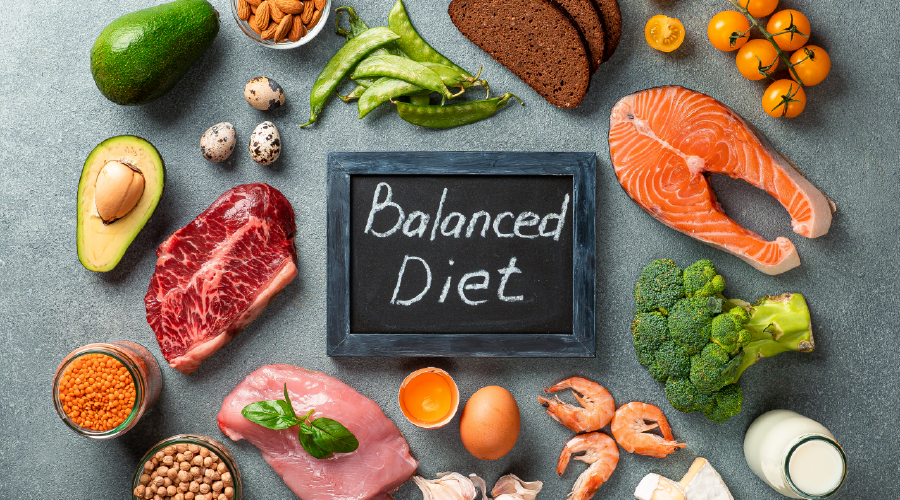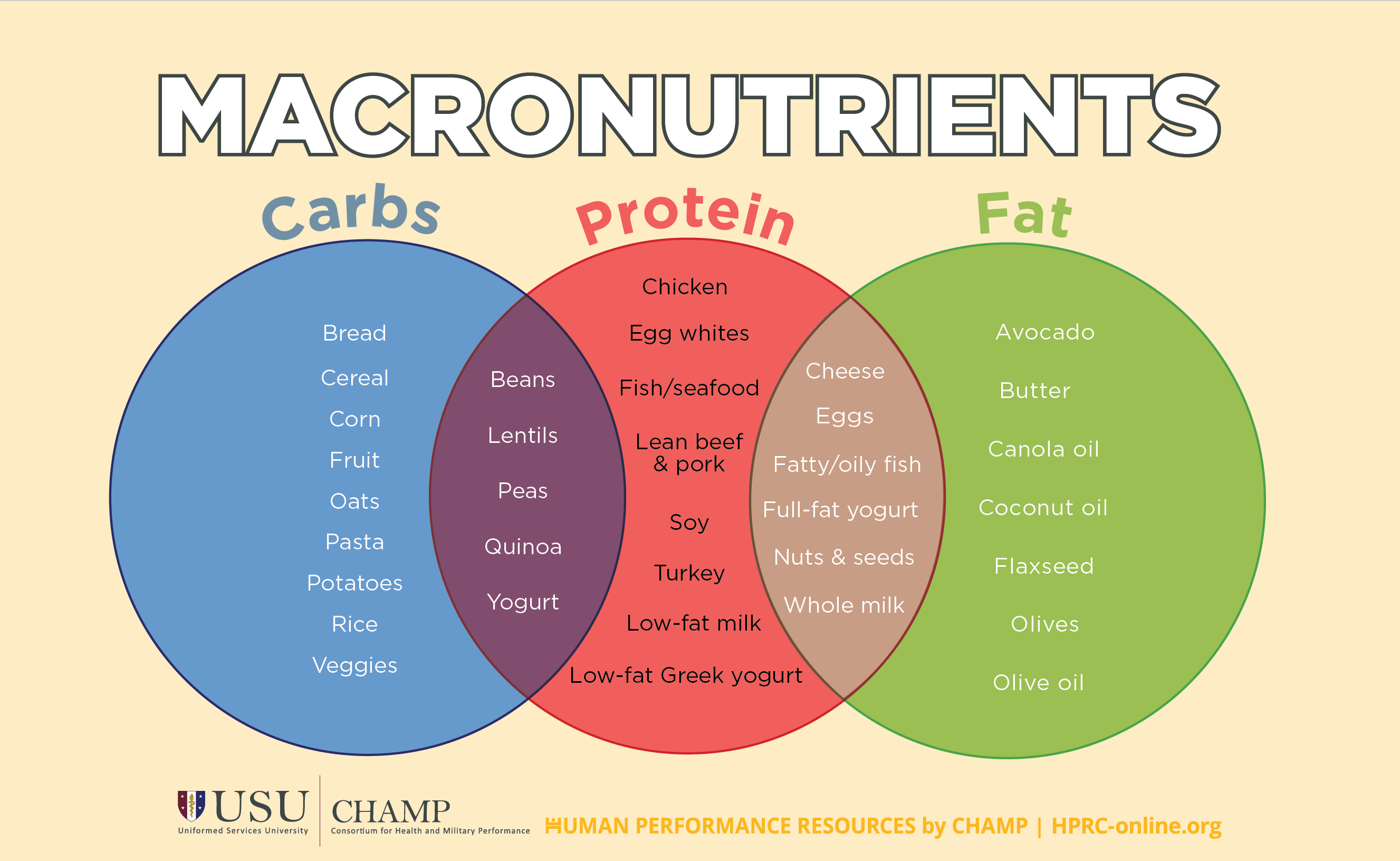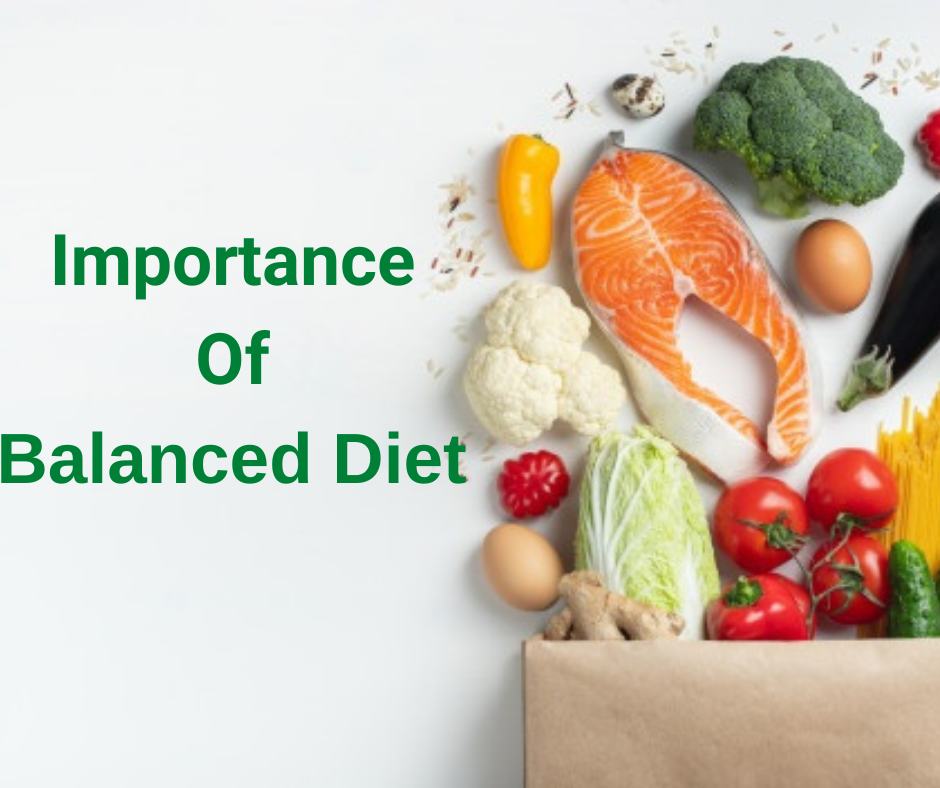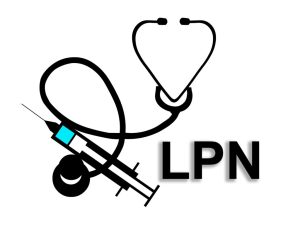
In today’s fast-paced world, where convenience foods and sedentary lifestyles dominate, it can be easy to overlook the importance of a balanced diet. But what exactly is a balanced diet? It goes beyond simply counting calories or cutting out specific food groups. A balanced diet is about nourishing our bodies with the right combination of nutrients, vitamins, and minerals that we need to function at our best. It involves consuming a variety of foods from different food groups in appropriate proportions, ensuring that we get all the essential nutrients necessary for optimal health. So, let’s delve deeper into the concept of a balanced diet and unravel its significance in maintaining overall well-being.
Macronutrients:

Carbohydrates, proteins, and fats are the three macronutrients that are essential for maintaining a balanced diet. While each of these nutrients plays a distinct role in our body’s functioning, it is important to understand how they interact with one another and the significance of consuming them in appropriate proportions.
Carbohydrates
Carbohydrates serve as the primary source of energy for our bodies. They are broken down into glucose during digestion, which then gets absorbed into the bloodstream and transported to different cells for energy production. However, not all carbohydrates are created equal. Complex carbohydrates found in whole grains, fruits, and vegetables provide sustained energy throughout the day, whereas simple carbohydrates like refined sugars offer only quick bursts of energy.
Proteins
Proteins are often referred to as the building blocks of life because they play a crucial role in repairing and building tissues within our body. They also act as enzymes that facilitate biochemical reactions necessary for essential bodily functions. To ensure an adequate intake of protein, it is important to consume a variety of sources such as lean meats, poultry, fish, legumes, nuts, and seeds.
Fats
Fats have long been demonized due to their association with weight gain and cardiovascular diseases; however, not all fats should be considered unhealthy or avoided altogether. Healthy fats play a vital role in providing insulation to organs against shock and temperature changes while aiding nutrient absorption. Omega-3 fatty acids found in fatty fish like salmon or flaxseeds have been shown to protect against heart disease.
Micronutrients:

Micronutrients play a crucial role in maintaining our overall health and well-being. Vitamins and minerals are two types of micronutrients that our bodies require in small quantities, but their impact on our health is far from minor. These essential substances are responsible for carrying out important functions within our body, such as supporting the immune system, aiding in metabolism, and promoting healthy growth.
Vitamins
Vitamins are organic compounds that our bodies need to function properly. They come in different forms, such as vitamins A, B, C, D, E, and K. Each vitamin serves a unique purpose; for instance, vitamin C boosts our immune system and aids in collagen production while vitamin D helps regulate calcium levels and supports bone health.
Minerals
Minerals are also vital for various bodily functions. Some common minerals include iron, calcium, zinc, magnesium, potassium, and sodium. Iron is crucial for the transportation of oxygen through the blood while calcium is necessary for strong bones and teeth formation. Additionally, minerals like zinc support wound healing,and magnesium plays an important role in muscle relaxation.The right balance of these essential micronutrients is necessary to maintain optimal health.
In conclusion, micronutrients hold immense significance when it comes to achieving a balanced diet. Vitamins offer benefits that nurture different aspects of health while minerals work synergistically with them to support overall well-being.A varied diet consisting of whole foods can often provide all the necessary vitamins and minerals.
Importance Of Balancing Nutrients For Overall Health

Our overall health is intricately connected to the nutrients we consume on a daily basis. A balanced diet, which consists of a variety of essential nutrients, is crucial for maintaining optimal health. Each nutrient plays a unique role in our bodies, and lacking any one of them can have adverse effects on our well-being.
One key aspect of balancing nutrients is ensuring that we are consuming all three macronutrients – carbohydrates, proteins, and fats – in appropriate proportions. Carbohydrates provide energy for the body, while proteins play a crucial role in building and repairing tissues. Fats are essential for hormone production and assisting with the absorption of fat-soluble vitamins. By including all three macronutrients in our meals, we can support various bodily functions and promote overall health.
In addition to macronutrients, micronutrients such as vitamins and minerals are equally important for maintaining balance in our bodies. These micronutrients help regulate vital processes like metabolism, immune function, and cell growth. For instance, vitamin C acts as an antioxidant that protects cells from damage caused by free radicals. Minerals like calcium aid in bone strength and muscle function. Neglecting these important micronutrients can lead to deficiencies that may compromise our health over time.
Common Misconceptions About Balance Diet

- One common misconception about a balanced diet is that it means you have to completely cut out all your favorite foods. In reality, a balanced diet is about moderation and ensuring you get the right nutrients in the right proportions. It’s okay to indulge in a slice of pizza or have a sweet treat every once in a while, as long as you are overall eating a variety of foods that provide the necessary vitamins, minerals, and macronutrients.
- Another misconception is that a balanced diet is complicated and requires tedious meal planning. While it can be helpful to have some meal prep strategies in place, it doesn’t have to be overwhelming. Simply focusing on incorporating whole foods like fruits, vegetables, lean proteins, whole grains, and healthy fats into your meals can go a long way in achieving balance. Experimenting with different flavors and recipes can also make the process fun rather than daunting.
So next time you hear someone say they cannot maintain a balanced diet because they don’t want to give up their favorite foods or because it seems too much work – remind them that balance is key.
Conclusion:
In conclusion, achieving a balanced diet is not just about counting calories or restricting certain food groups. It is about nourishing our bodies with the right nutrients in the right proportions. A balanced diet ensures that we provide our bodies with all the essential vitamins, minerals, proteins, carbohydrates, and healthy fats it needs for optimal function.
A key aspect of a balanced diet is variety. Incorporating a diverse range of foods can help us obtain a wide array of nutrients necessary for good health. This means including fruits and vegetables from different colors and types, as well as incorporating lean sources of protein such as fish, poultry, beans, and nuts. It’s also important to choose whole grains over refined grains for their higher fiber content.
Moreover, moderation plays a crucial role in achieving balance in our diets. It’s okay to indulge in occasional treats or enjoy your favorite foods from time to time; however, it’s essential to do so mindfully and in controlled portions. The key here is finding the right equilibrium between indulgence and restraint.
Achieving and maintaining a balanced diet can be challenging at times but adopting small changes gradually can go a long way towards overall health improvement. Remember that balance doesn’t mean perfection – it simply involves making conscious choices day by day that prioritize nourishment over restriction while still allowing room for enjoyment.
Also Read: Unveiling The Hidden Secrets Of On-Page Optimization For SEO Success







